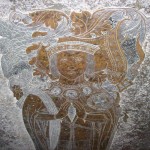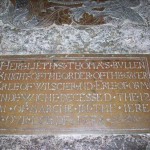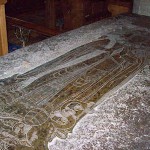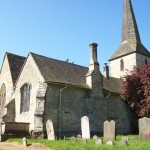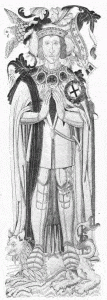
Thomas was buried at St Peter’s Church, Hever, and his memorial brass, which depicts him dressed in the full robes and insignia of a Knight of the Garter, including the badge on his left breast and garter around his left knee, is considered as one of the finest surviving memorial brasses in England.
In April 1539, Henry VIII paid 16l. 13s. 4d. to his chaplain, William Franklyn, Dean of Windsor, “for certain oraisons, suffrages and masses to be said for the soul’s health of th’erle of Wilts, late deceased”. The Earl had been a loyal servant to the king, and to his father before him.
You can read more about Thomas Boleyn’s final years and death in my article The Death of Thomas Boleyn.
I know I will see a fair few negative comments about Thomas Boleyn on social media today and I always find it interesting that people are willing to give Anne Boleyn the benefit of the doubt but that this benefit does not extend to her father. This is probably because of how he has been depicted in fiction and on TV. Back in 2012, I wrote the article In Defence of Thomas Boleyn, Father of Anne Boleyn, challenging some of the negative perceptions some people have of Thomas by comparing to them with what historical evidence tells us. I hope you find my article interesting.
